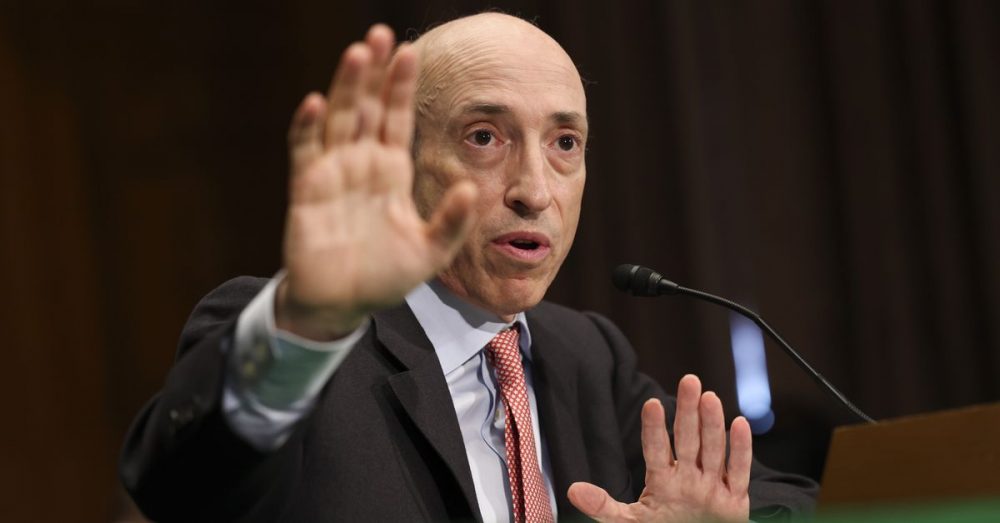Gary Gensler, the chairman of the U.S. Securities and Exchange Commission (SEC), isn’t waiting for new powers from Congress in order to enforce securities laws against crypto companies, though he said Wednesday that it would be good to have more money and additional reach beyond U.S. borders.
Gensler, who declined to specifically talk about FTX and former CEO Sam Bankman-Fried, said in an interview on Yahoo! Finance that the SEC has the basic disclosure and governance requirements in place to hold digital assets firms accountable. The SEC chief also didn’t directly address questions about whether his agency would push out tailored crypto rules next year, but he insisted that it doesn’t need any.
“The rules are there,” he said. “The law firms know how to advise their clients to comply.”
As the fiery crash of FTX taught harsh lessons about the dangers of running a global platform without walls between customer funds and investment operations, Gensler underlined that crypto firms can’t touch U.S. investors if they’re going to insist on running themselves as Swiss Army knives that do it all.
“Your field will not last long outside of public policy norms,” he said. “Some of these platforms have come in and said, ‘We want to continue running a co-mingled platform. We want to continue doing lending, trading, hedge fund functions, an exchange function, a custody function.’ We said, ‘No, you have to separate it out.’”
Gensler has grown his crypto enforcement team, though the agency hasn’t yet dropped a bomb on a major cryptocurrency platform. The court case over whether Ripple’s XRP is a security – and within reach of SEC authority – has been seen as the major lingering question holding the agency back. However, Gensler said Wednesday that a federal judge’s recent decision determining that crypto startup LBRY violated securities laws by selling its native LBC tokens was a “very big win” for the SEC’s legal campaign.
So far, the SEC hasn’t directly gone after U.S. exchange Coinbase (COIN) for listing what the agency believes are securities without registering as a national securities exchange. Still, the SEC has – in another recent enforcement action – listed several tokens it considered unregistered securities that were traded on the company’s platform.
Whether the SEC wants new laws or not, Congress has made crypto a new priority this year, and lawmakers from both parties are expected to push for the first major crypto legislation in the next session. Most of the preliminary efforts have sought to raise the U.S. Commodity Futures Trading Commission into a prominent role in oversight of crypto trading.
Gensler’s agency doesn’t need new crypto rules, he argued, adding that what would really help would be more resources and more powers over activity happening in other jurisdictions. The agency already regulates $100 trillion markets – mainly in stocks, bonds and government securities – and no matter how much attention crypto is getting, he said Wednesday, it’s a relatively small market.
“Worldwide, it’s about 800-ish billion,” he said. “We don’t know the exact number in the U.S., but far smaller than the 800 billion.”





